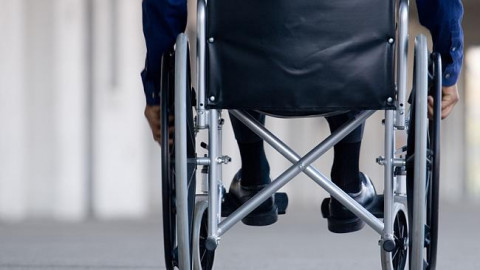
The trial of the $22 billion National Disability Insurance Scheme in South Australia has twice as many eligible clients as predicted, is 12 months behind schedule and is such a disaster that the federal minister responsible privately calls it the country’s “worst” pilot of the scheme.
The agency delivering the NDIS has sought to hide the extent of the overrun in the state by releasing figures it knows are out of date.
The Australian can reveal the agency now privately concedes that 10,000 children are eligible for the NDIS trial there despite bilateral agreements between the federal and South Australian governments that locked in 5085 places.
The trial, which sought to include children aged from birth to 14, is so woefully behind schedule that planners are still assessing six-year-olds.
As the NDIS intake has been bungled, disability services are drying up elsewhere in the state. The South Australian government has run out of money to adequately fund all its disability obligations as well as the NDIS. The intergovernmental agreements include a clause which states that the commonwealth will pick up the tab for any overruns, but The Australian understands there is now a squabble over who is responsible.
Friction dates back to the negotiations between former prime minister Julia Gillard and South Australian Premier Jay Weatherill. At the time, in 2012, South Australia provided its projections for the number of children who would be eligible, at slightly more than 5000.
But the federal government had done an internal actuarial assessment of the number eligible and that figure was about 11,000 children. This work has never been made public.
Despite having serious reservations, Ms Gillard was keen for a political deal and the agreements were signed with the dramatically lower number.
Federal Assistant Social Services Minister Mitch Fifield has made some extra money available to make up for the error but expects the South Australian government to also pitch in because its figures were so wide of the mark. The state government, however, has refused to budge.
The chairman of lobby group Disability Speaks, David Holst, saidthe standoff between the governments was “chronically unhealthy” for the affected families and children. “There is a significant risk the rest of the rollout supposed to start in 2016 will be delayed,” he said. “Clearly the state and the federal government need to do a deal, a compromise, and it should have been done a long time ago.”
A Department of Social Services spokeswoman said talks between the two parties were still under way. “In the meantime, the commonwealth government recently provided an additional $72 million to address the backlog,’’ she said. “The commonwealth and South Australia are endeavouring to finalise transition agreements by the end of August … to support the national rollout of the scheme.”
The South Australian government disputes this figure. State Disabilities Minister Tony Piccolo conceded it was unfortunate that “people who should have transitioned to the NDIS ... are still waiting”.
“This is because the federal government is not funding the trial as was agreed,” he said. “The state government is calling on the Abbott federal government to honour the bilateral agreement and fully fund the trial here in South Australia. This will reduce the delay for those who are waiting to transition to the trial.”
The National Disability Insurance Agency is aware of the bungle and its staff has been telling people in the disability sector that there are now about 10,000 children eligible for the trial but refused to answer detailed questions from The Australian.
Instead, it cited old figures from March that 3212 children had NDIS plans and referred to the now universally discredited bilateral agreement.
“According to the bilateral agreement between the commonwealth and the South Australian government, 5085 kids will be part of the scheme by the end of the trial,” a spokesman said.
Dignity for Disability Party’s Kelly Vincent, a member of the South Australian parliament, said both sides needed to swallow their pride and fix the mess.
from http://www.theaustralian.com.au/nationa…
Editor notes: Currently, 40% of NDIS participants in South Australia have autism as their primary disability. Problems with NDIA estimates of numbers were known before the NDIS trials started in South Australia ... see
- Disability report chronically understates ASD diagnoses and
- the first footnote to Autism/ASD prevalence in Australia
Both the NDIA and the South Australian Government were told emphatically that the initial estimates for the NDIS were wrong. They both chose to ignore those warnings. Both Governments have only themselves to blame: blaming each other is juvenile behaviour ... and while they waste time bickering they deprive very vulnerable people of services and supports that are by definition "necessary".
See also
- http://www.disabilityspeaks.com.au/mr/T… ,
- http://www.abc.net.au/worldtoday/conten…
- the previous blow-up over this same issue: unacceptable political games over early intervention for children with disability.